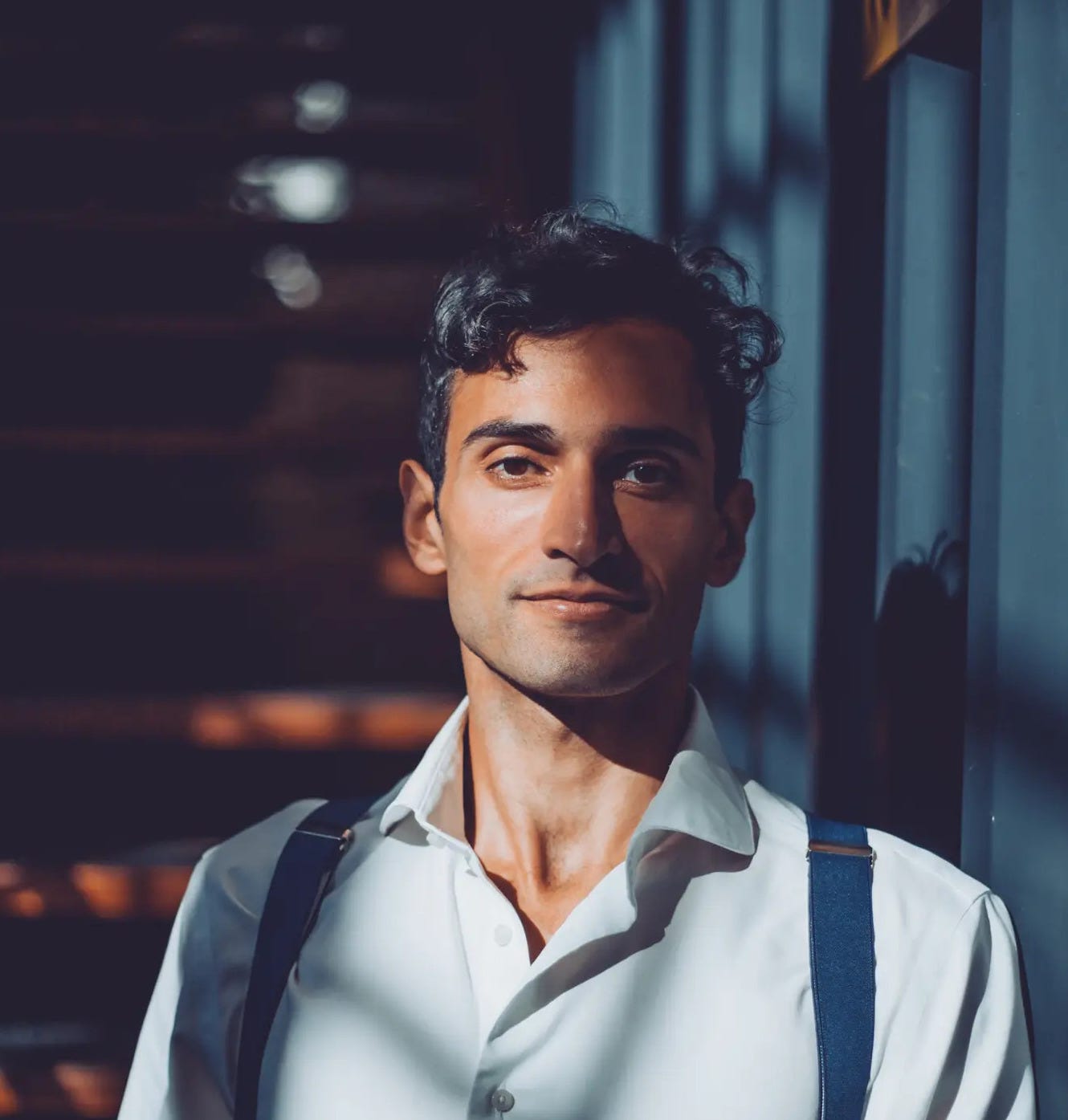Behind the scenes: Dario
Who is behind Decode Estonian?
Hey, I’m Dario 👋
Some of you know me personally already, but since there has been an influx of new subscribers recently, I thought a proper introduction is in order!
All go the grammar content you see here is written by me, and my assistant Käti (to be introduced soon!) writes a lot of the vocabulary posts.
While I don’t have an interviewer, I like the format of an interview, so let’s do this as a Q&A!
Why did you start Decode Estonian?
I actually started this project out of frustration: the myth of Estonian being “hard” to learn has been perpetuated for too long!
Estonian works differently compared to English or Spanish and if that is your reference point, expecting learning to be a smooth experience like picking up another similar language is a recipe for disappointment.
My goal is simple: reduce disappointment by making Estonian easy to understand.
Approaching Estonian from a different angle - structure first, vocabulary second - actually makes it pretty easy to learn.
How did you learn Estonian? (or: Why should I trust you?)
Good question!
I started learning Estonian on my own, living in Germany, at the age of 16, in the year 2006.

Remember, back then the internet was “new”.
So there weren’t that many resources available.
I got the grammar from Wikipedia and the words from the one dictionary I could find.
With my background in Latin (yes, at least in Bavaria people are still forced to learn Latin), I had the tools to appreciate the structure of Estonian.
Compared to Latin, German, and Spanish, Estonian was just so different but also strangely familiar (there are a lot of German words in Estonian).
Once I had the chance to travel to Tallinn at the ripe age of 18, I was so excited that I just used every opportunity to speak and practice.
One trip turned into many, and my friends from back then tell me that it took me roughly 2 months of practice in Estonia to get to the point where I could hold a conversation in Estonian.
Enough about you, how does this help me?
Build a foundation for learning Estonian and other languages: grammatical structures, strategies for learning, a method for translation.
Languages that work similarly to languages you already know are languages that you can “just pick up”.
Think of learning Portuguese when you already know Spanish. It’s basically the same language, with a few slight tweaks.
Or picking up Swedish through English and German.
You have to essentially “read the manual” of languages that are very different from what you already know OR accept that you will be confused for a long time and make a lot of mistakes.
Decode Estonian is essentially a guided tour through the “manual” of Estonian, presented in an entertaining manner, taking everything you already know into account.
Learning the language in a day sounds too good to be true. How can you claim this?
I can claim this because there is a lot of wiggle room in the definitions of learning and knowing a language ;)
Every workshop participant so far got to the point where they can independently (i.e. without me looking over their shoulder) translate at least Estonian news.
One person even translated three pages of a book.
Sounds amazing, right?
Well, here’s the ugly truth: reading and translating will feel like a slog in the beginning.
You have to look up almost every word (but you know how to do this correctly!).
The same applies to grammatical constructions (case endings etc).
However, at this point, learning stops being an exploratory activity and turns into a feedback loop with concrete steps.
The more often you go through this feedback loop, the faster you’ll be able to complete future iterations.
Why do things this way if everything feels difficult at the beginning?
Here’s the thing: nobody can put in the work for you.
No language teacher can practice reading, speaking, writing, and listening for you.
A teacher can help you correct your pronunciation, writing, etc.
Some of them might even be successful at forcing you to speak/listen/write/read.
But ultimately, it is your brain and only you can feed it with information and make it understand things.
Accepting this fact, I want to equip you with the tools so that you can continue learning on your own.
Ideally, I see you only once during a workshop.
After that, you will be able to make progress and evaluate your progress on your own.



